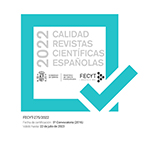Non-Sexist Language in CORGA: Description of the Variants Used and Further Reflection
Abstract
Masculine markers have been traditionally used to refer to males and females collectively. However, over the past few decades a growing sector of the population has been claiming that masculine markers cannot be regarded as neutral, given that these do not include gender identities other than masculine. As this use is thought to stem from the male privileges in androcentric societies, the struggle for gender equality has also reached language. Examples show that feminine markers are being made visible while gender binarism is being disfavoured. In fact, several options are being employed, for instance, writing gendered nouns in their masculine and feminine endings (os alumnos e as alumnas, as alumnas e os alumnos), choosing a gender-neutral term (o alumnado) and developing innovative spellings (os/as alumnos/as, as/os alumnas/os, @s alumn@s, xs alumnxs and, more recently, es alumnes). This article focuses on the use of the aforementioned variants in present-day written Galician by analysing the data compiled in the Corpus de Referencia do Galego Actual (CORGA), with a view to launching a linguistic debate on the adoption of a new value for the gender grammatical category and its potential treatment in descriptive grammars.
Downloads
Article download
License
In order to support the global exchange of knowledge, the journal Madrygal. Revista de Estudios Gallegos is allowing unrestricted access to its content as from its publication in this electronic edition, and as such it is an open-access journal. The originals published in this journal are the property of the Complutense University of Madrid and any reproduction thereof in full or in part must cite the source. All content is distributed under a Creative Commons Attribution 4.0 use and distribution licence (CC BY 4.0). This circumstance must be expressly stated in these terms where necessary. You can view the summary and the complete legal text of the licence.








